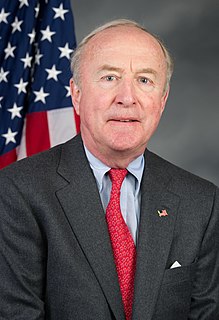A Quote by Richard P. Rumelt
You overcome the logical resistance to change by proving that a new approach actually works, usually on a small scale.
Related Quotes
The positive evidence for Darwinism is confined to small-scale evolutionary changes like insects developing insecticide resistance....Evidence like that for insecticide resistance confirms the Darwinian selection mechanism for small-scale changes, but hardly warrants the grand extrapolation that Darwinists want. It is a huge leap going from insects developing insecticide resistance via the Darwinian mechanism of natural selection and random variation to the very emergence of insects in the first place by that same mechanism.
To make the quickest progress, you don't have to take huge leaps. You just have to take baby steps-and keep on taking them. In Japan, they call this approach kaizen, which literally translates as 'continual improvement.' Using kaizen, great and lasting success is achieved through small, consistent steps. It turns out that slow and steady is the best way to overcome your resistance to change.
I agree with O'Toole that custom and comfort are impediments to change. However, it is important to recognize that resistance to change is logical as well. The new "change masters" literature seems to take change as the norm. It isn't. Humans naturally see change as risky because it is risky, just as mutations in genes are mostly destructive. You would not want to go to work were everything changed every week! The phone system, the office assignments, who reports to who, and the whole set of job expectations.
When we approach games, we're always emotional-focused, so if a free-to-play business model works against the emotion, we won't use it. If it actually works well with the emotion, or if we can come up with a new way to do monetization that's different and that's unique for the game, I would go for that.
How is freedom measured, in individuals as in nations? By the resistance which has to be overcome, by the effort it costs to stay aloft. One would have to seek the highest type of free man where the greatest resistance is constantly being overcome: five steps from tyranny, near the threshold of the danger of servitude.
I am preoccupied with the possibility of creating art which functions in a public situation without compromising its private character of being antiheroic, antimonumental, antiabstract, and antigeneral. The paradox is intensified by the use on a grand scale of small-scale subjects known from intimate situations--an approach which tends in turn to reduce the scale of the real landscape to imaginary dimensions.
In war the chief incalculable is the human will, which manifests itself in resistance, which in turn lies in the province of tactics. Strategy has not to overcome resistance, except from nature. Its purpose is to diminish the possibility of resistance, and it seeks to fulfil this purpose by exploiting the elements of movement and surprise.
The ultimate success formula: I) Decide what you want (Be precise! Clarity is power) II) Take action (because desire is not enough) III) Notice what's working or not (You don't want to continue to expend energy on an approach that's worthless IV) Change your approach until you achieve what you want (Flexibility gives you the power to create a new approach and a new result.)


































